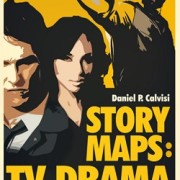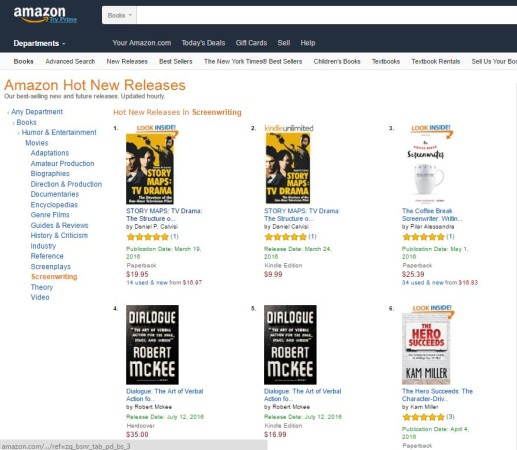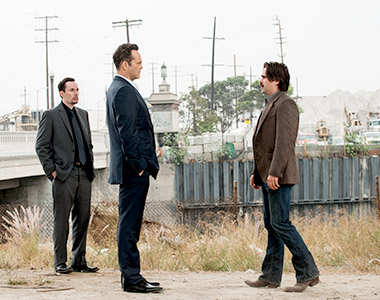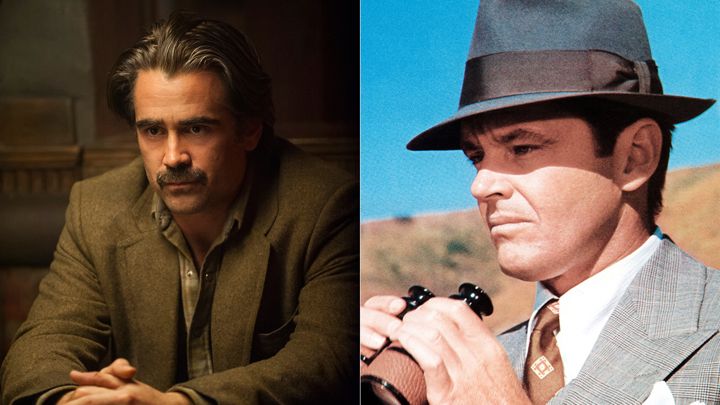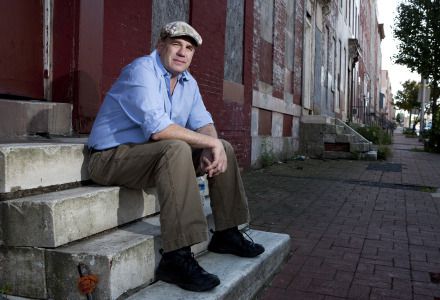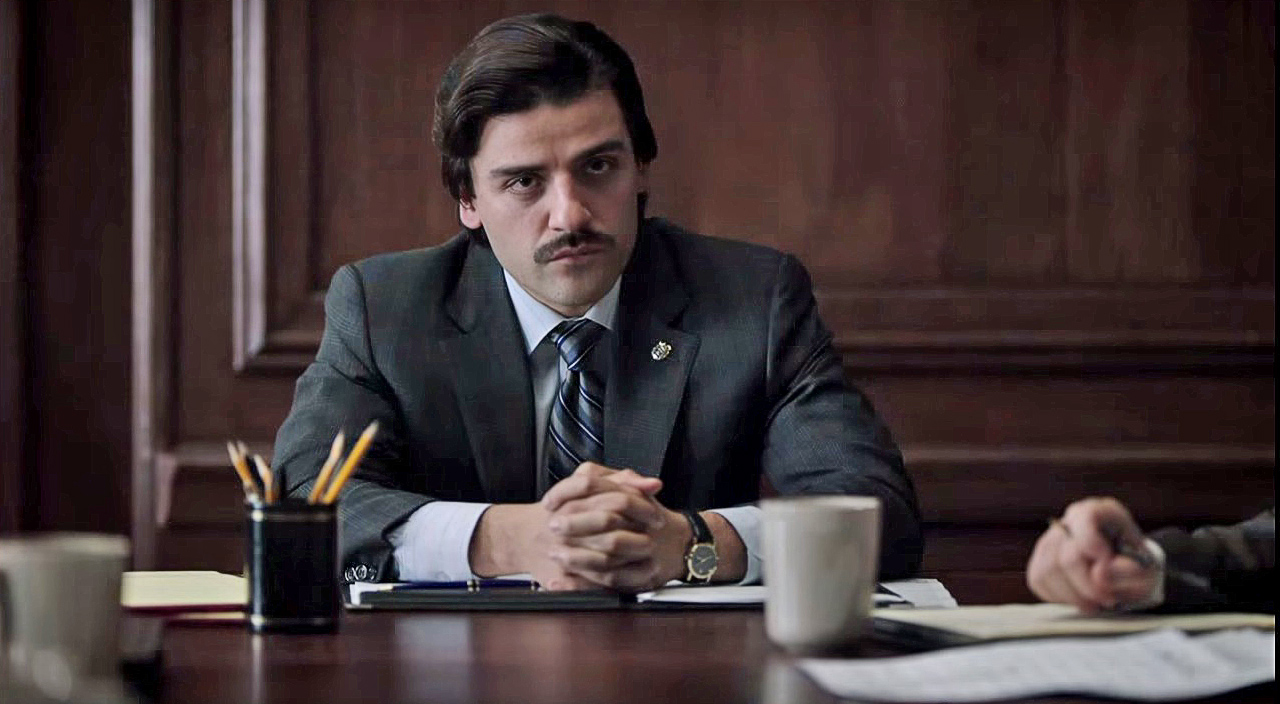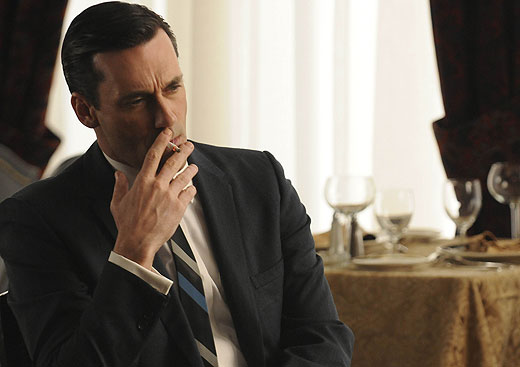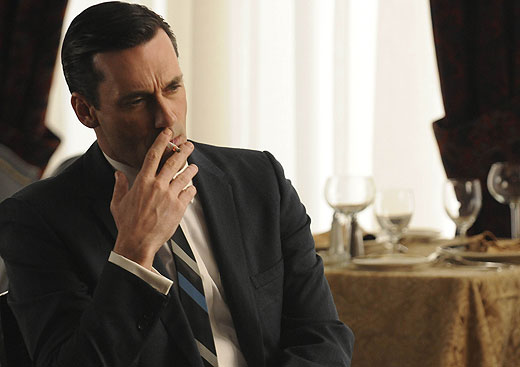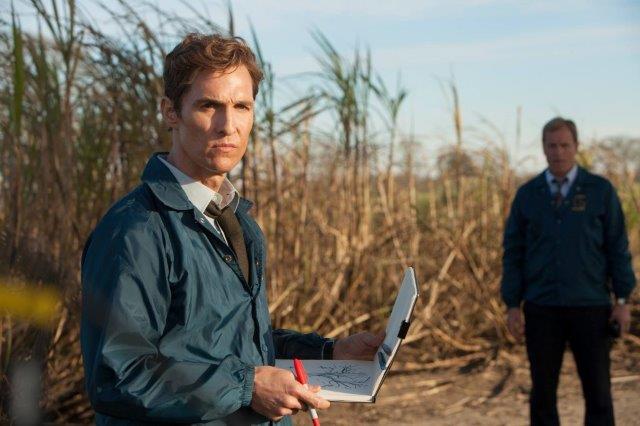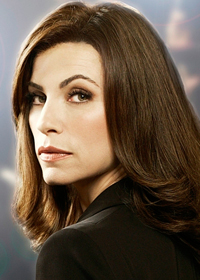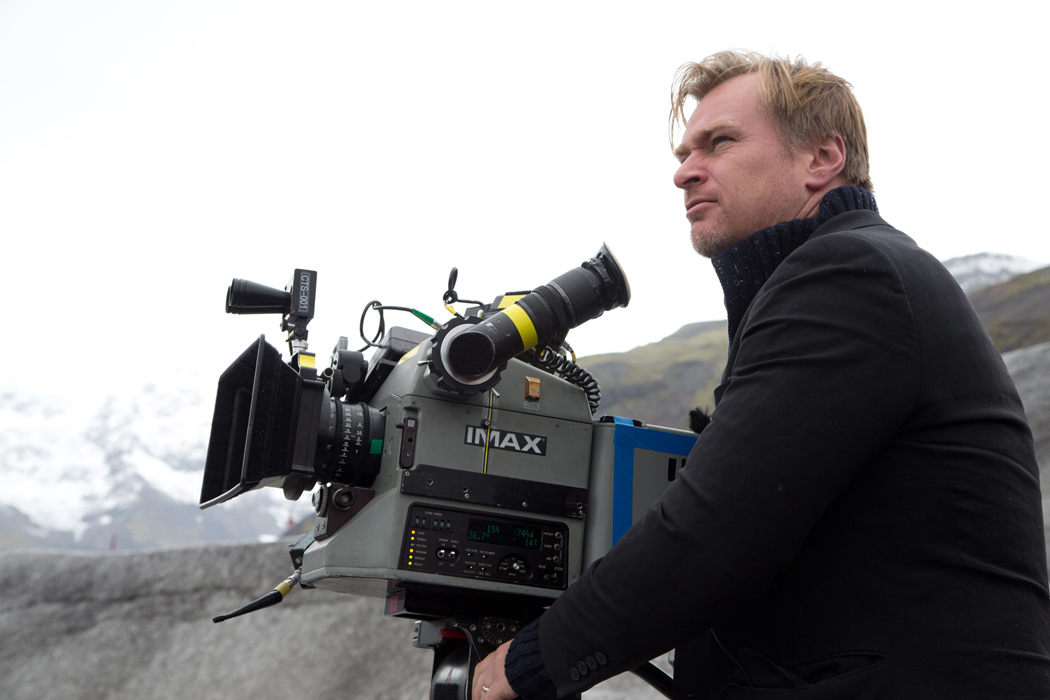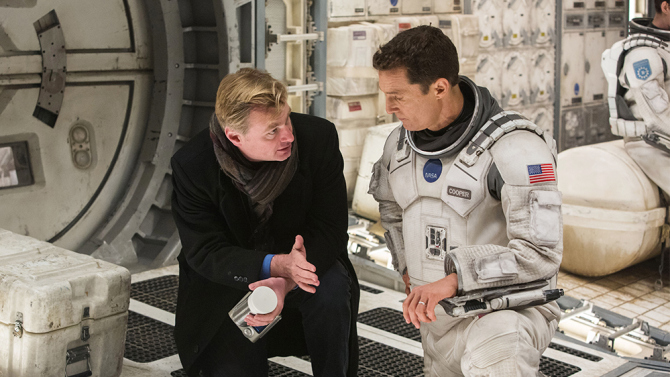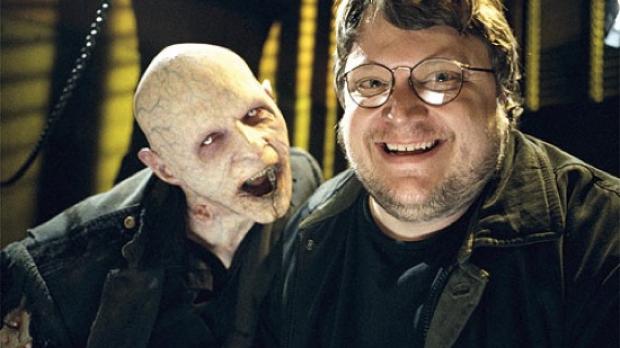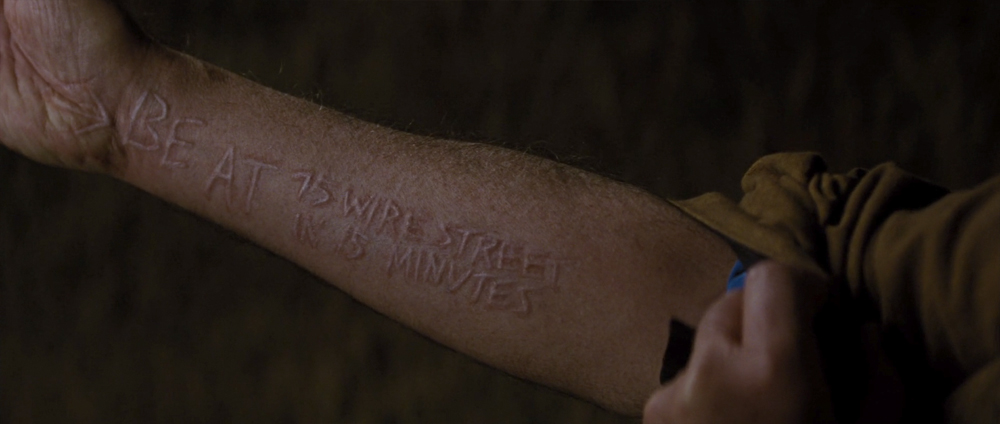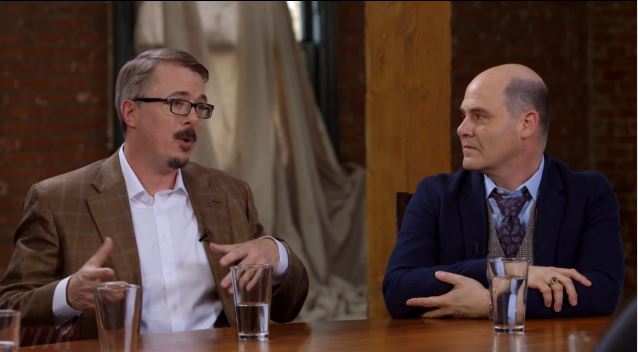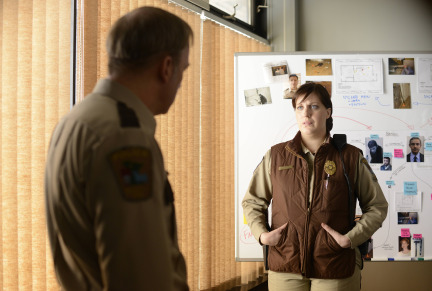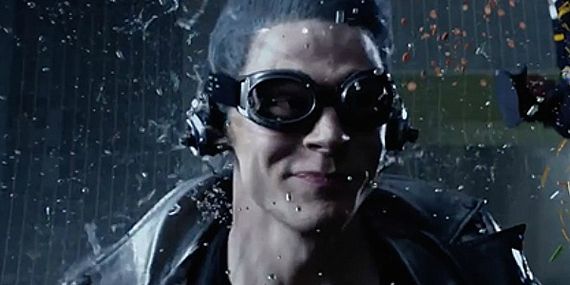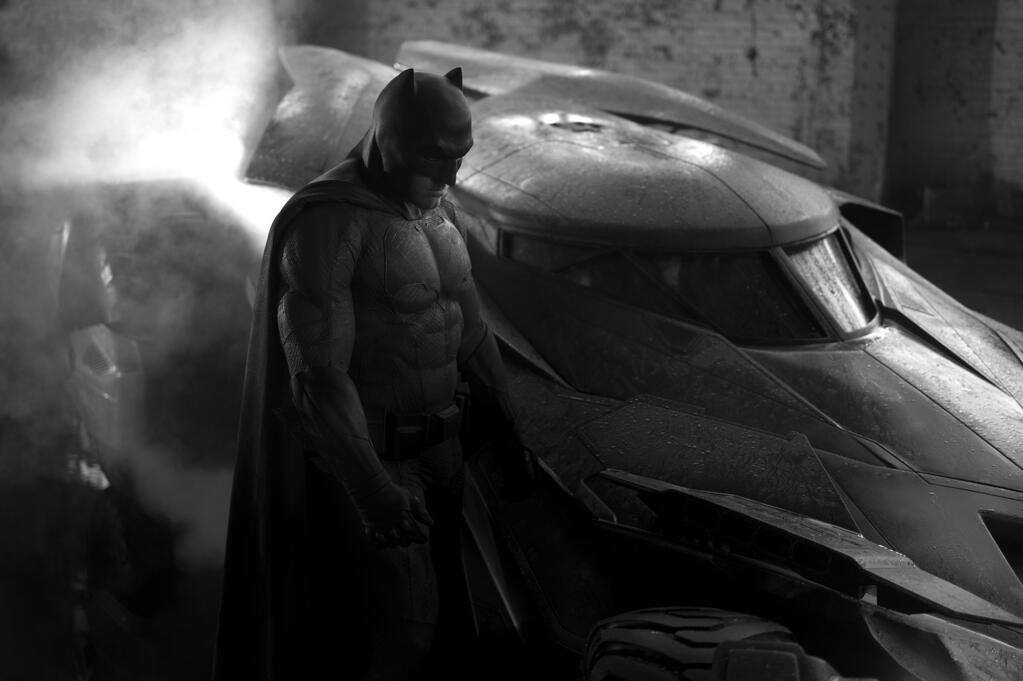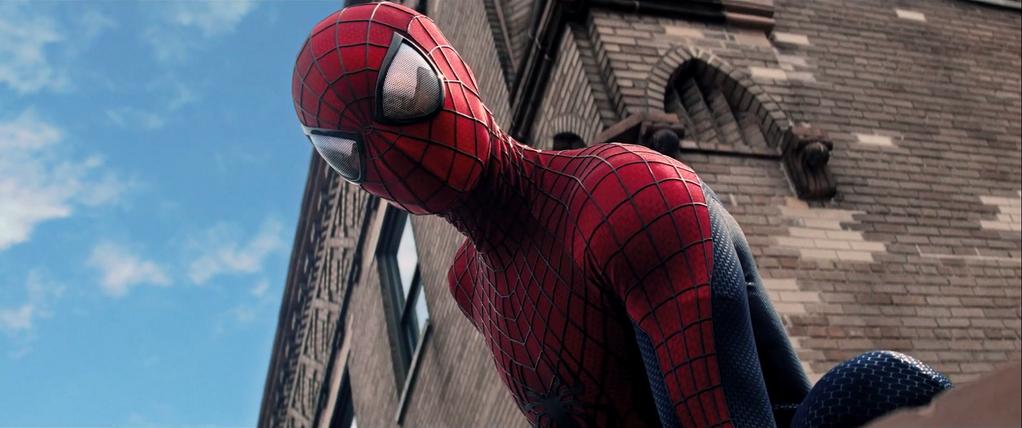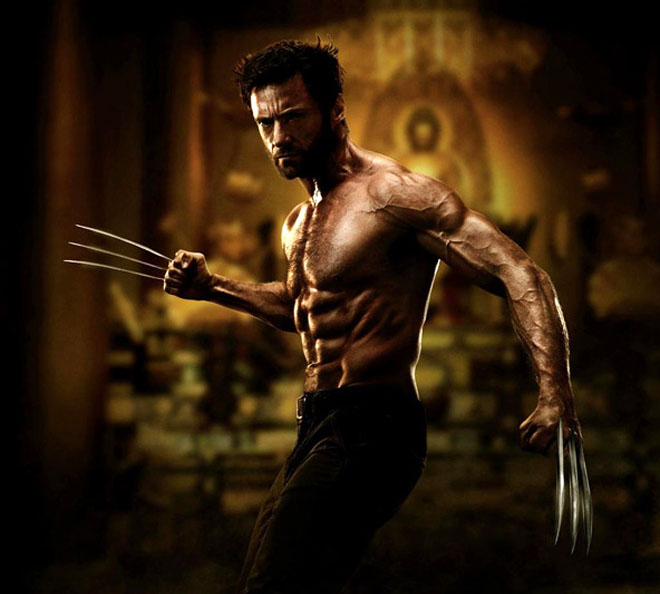The Difference Between Film and Television Concepts by Daniel Calvisi
Dear Screenwriter,
You may come up with a cool idea for a movie and be told that it would make a better TV series, or you may create a concept for a TV series and be told it’s more fit for the big screen. How do you tell the difference between a concept that works best as a Feature versus a TV pilot/series?
FEATURE FILM
Film is pretty simple: it is a complete story with a closed ending. Unless you’re writing the first part of a trilogy (which I do not recommend, unless you happen to have procured the rights to a best-selling book series), the ending wraps up your compelling tale which (hopefully) had a beginning, middle and end. It can be a happy or sad ending, but that particular narrative has reached a closing point. You’ve exhausted the concept and we, the Reader or Audience, are satisfied. Fade out.
95% of the time, a feature script/film is going to use the “classical” 4-Act structure (Act One, Act Two-A, Act Two-B and Act Three.). Even if the story is told in a non-linear way, it should ideally fit into this meta-structure. My Story Map structure fits ably into this form, and you can learn much more about it in my books and webinars.
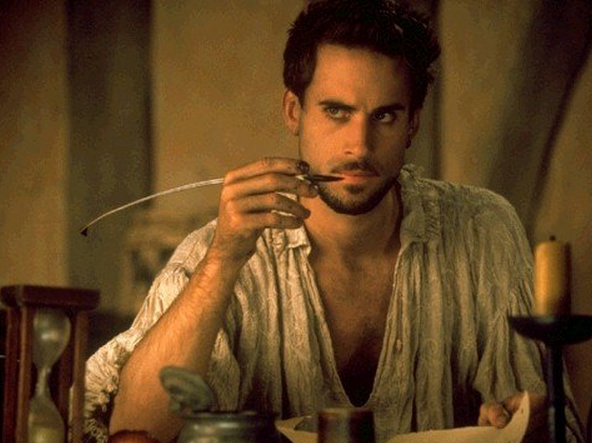
The idea for a feature film should be able to be expressed in a logline, which is a one-line snapshot of the unique dramatic situation in approximately 20-30 words. A feature film logline should suggest a stand-alone story, rather than an ongoing saga. Here are three loglines for famous films:
Shakespeare in Love – A comedic “re-writing of history” in which a young William Shakespeare is inspired by his own tortured romance to write “Romeo and Juliet,” the most famous fictional romance in history.
Slumdog Millionaire – A kid who grew up in extreme poverty uses his memories to answer the questions on the quiz show, “Who Wants to Be A Millionaire?”
Minority Report – The police officer who oversees the department that predicts future murders must go on the run when the system predicts he is the next killer.
You can see how those loglines suggest just one story. They also have great hooks. A feature film concept must have a HOOK: some kind of unique take, spin, twist or turn that sucks us in and makes the story go in a surprising direction. This may be the thing that makes it cinematic. It may be a new perspective on a classic, familiar story that we’ve heard a million times, but the way in which you’re telling it is new.
I call this the “Big Idea,” but it doesn’t mean it only applies to big-budget or obviously commercial films. A micro-budget film shot on an iPhone can still contain a Big Idea. (Read more in depth about this topic in Chapter III: The Big Idea in Story Maps: How to Write a GREAT Screenplay.)
Your Big Idea can be focused, contained. Here are four loglines for feature thrillers that made the “Black List” and the “Hit List” in Hollywood:
VILLAINS
Contained Thriller
Two small time robbers become prisoners when they break into a house and discover a ten year old girl chained up in the basement.
GREAT FALLS
Dramatic Thriller
After negligently killing a hunter with their patrol car, a Sheriff’s Deputy and her superior must decide what to do with the only witness to their crime – a death row inmate only days from execution.
FREE GUY
Science Fiction Thriller
A bank teller stuck in his routine discovers he’s a background character in a realistic, open world action-adventure video game and he is the only one capable of saving the city.
ELI
Contained Horror Thriller
Having moved into a “clean house” to treat his auto-immune disorder, 11-year-old Eli begins to believe that the house is haunted. Unable to leave, Eli soon realizes that the house, and the doctor who runs it, are more sinister than they appear.
Notice how “Free Guy” is really the only concept here that suggests a sprawling world and possible big budget. The others could easily take place in only one or two locations.
When you submit a feature logline, I suggest you include the genre underneath the title. It can make all the difference to know that your concept is, for example, a comedy before we read it. One man’s drama pitch may be another man’s comedy pitch. Consider these two examples…
SERIAL KILLER
Thriller
When a ruthless killer begins to murder people in a small town, a paperboy realizes the victims are all on his route and he’s the only one who can stop him.
SERIAL KILLER
Comedy
When a ruthless killer begins to murder people in a small town, a paperboy realizes the victims are all on his route and he’s the only one who can stop him!
Same title, same exact logline (except for an exclamation mark), but two separate takes on it, depending on the genre. The first one could be a thriller from the Coen brothers and the second one could be a satire from the Farrelly brothers. Citing the genre gives the reader some stylistic context before they consider your logline.
TELEVISION
TV is a bit more tricky. Scripted television is long-form storytelling. The idea (what I call the “Compelling Crisis”) should be able to fill 100 episodes. You don’t need to have all 100 episodes mapped out, but the concept should feel like it could last that long. Your main character will have multiple arcs over the seasons, whereas in a feature film they may only have one arc.
“TV is a playground. You create a fascinating, original playground and fill it with interesting characters who create conflict for one another.” This was told to me by a friend who is a professional feature screenwriter and was making his first forays into television. He was focusing on creating a new world in a subculture not seen on television before.
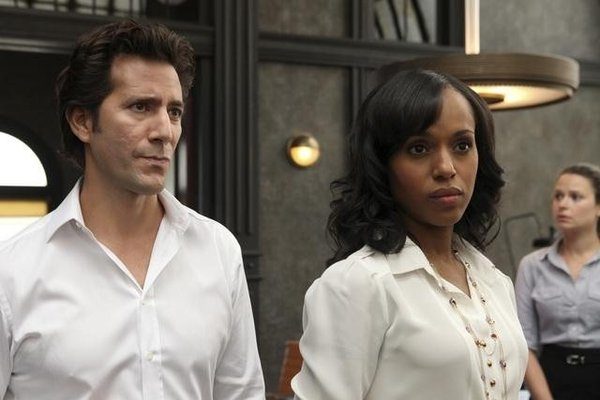
Shonda Rhimes is an incredibly successful television writer/producer (Scandal, Grey’s Anatomy, etc.). In an interview, she discussed how you know if an idea is well-suited for a TV series. She recommended first asking yourself whether the idea has an ending. If you can easily picture your story, or your character’s journey, coming to a conclusion, then your idea might be better suited for film. But if your idea sparks hundreds more, it could be the basis for a healthy, long-lasting TV show. For example, she could literally see hundreds of episodes of television for the show Scandal when she learned more about Judy Smith’s job as a Washington D.C.-based fixer (Smith is the real-life inspiration for the show’s protagonist, Olivia Pope). Similarly, Shonda knew that at the very least, she could write seven seasons of Grey’s Anatomy because surgical residencies typically last seven years.
She also suggested considering outside forces when assessing your idea. Where does your idea land when you consider it against the current cultural climate? How does your idea compare to what’s already on television and what network executives might be looking for in their development schedules? You don’t necessarily need to change your idea when you consider these factors, but it’s always good to be aware of them.
Character is important to all dramatic storytelling, but in TV, those long-term character arcs are the most important thing, moreso than plot. If we are going to spend years with these characters, they better be interesting. Especially the protagonist/s…
Breaking Bad: A mild-mannered high school teacher becomes a drug lord under the nose of his brother-in-law, a DEA agent.
Mad Men: An ad man with a dark secret desperately struggles for happiness in Manhattan in the turbulent 1960s.
Sons of Anarchy: “Hamlet in a biker gang.” Stepfather and son fight to keep a gun-running biker gang together amidst corruption, betrayals and escalating violence.
The Americans: Two Russian sleeper agents in the 1980s pose as the perfect suburban couple by day as they run missions by night, which ironically bring them closer as real lovers.

A hot format right now is the 30-minute Dramedy. Dramedies tend to be more culturally specific than most 30-minute sitcoms. For example…
Atlanta: A young black man in a low-income Atlanta suburb struggles to establish a career in the chaotic and dangerous world of hip-hop.
Transparent: A Jewish family in Los Angeles deals with the ramifications of their father becoming a woman.
Master of None: A struggling, Indian-American actor in New York City searches for love and the meaning of adulthood.
It’s still ideal to use one sentence for a TV series logline, but since it can be more difficult to explain a TV story than a feature story, feel free to take an extra line. Just don’t go overboard and submit a five-line paragraph. Here is a three-line logline for a show that sold to HBO that I bet you could fit into two lines…
These Things Happen: Set in present day Manhattan and focuses on two couples – one gay, one straight. They share a 15-year-old son, who lives on the Upper East Side with his mother and doctor stepfather. Trying to get to know his impressive, distant father better, he moves in for a semester with him and his long-time partner who forms an instant friendship with the boy.
Not only is that logline hard to understand, its length demands too much time for the reader (a busy rep or executive) to dissect it. It should be edited for clarity and brevity.
When you submit a TV logline to me and the Industry Advisors in my Story Maps Master Class, I ask you to not only identify the format (one hour, half hour) but also include a “comp” show to help us get a better sense of the style and tone of your series. A comp, or comparison, is a recent, successful series that shares some major elements with yours. Citing the comp will help us visualize and “feel” your show. E.g., maybe your series features a female lawyer protagonist (The Good Wife), a mockumentary format (Modern Family), a 1980s suburban setting (Stranger Things), or it’s a crime procedural (NCIS).
If you have a few concepts and you’re looking for some structure to help you choose the right one to develop into a pilot or feature, don’t hesitate to ask me about my Story Maps Master Class, which is an online course you can take with a group or one-on-one with me. This article is an excerpt from the materials I provide in the class.
Good luck and happy writing,
Dan



